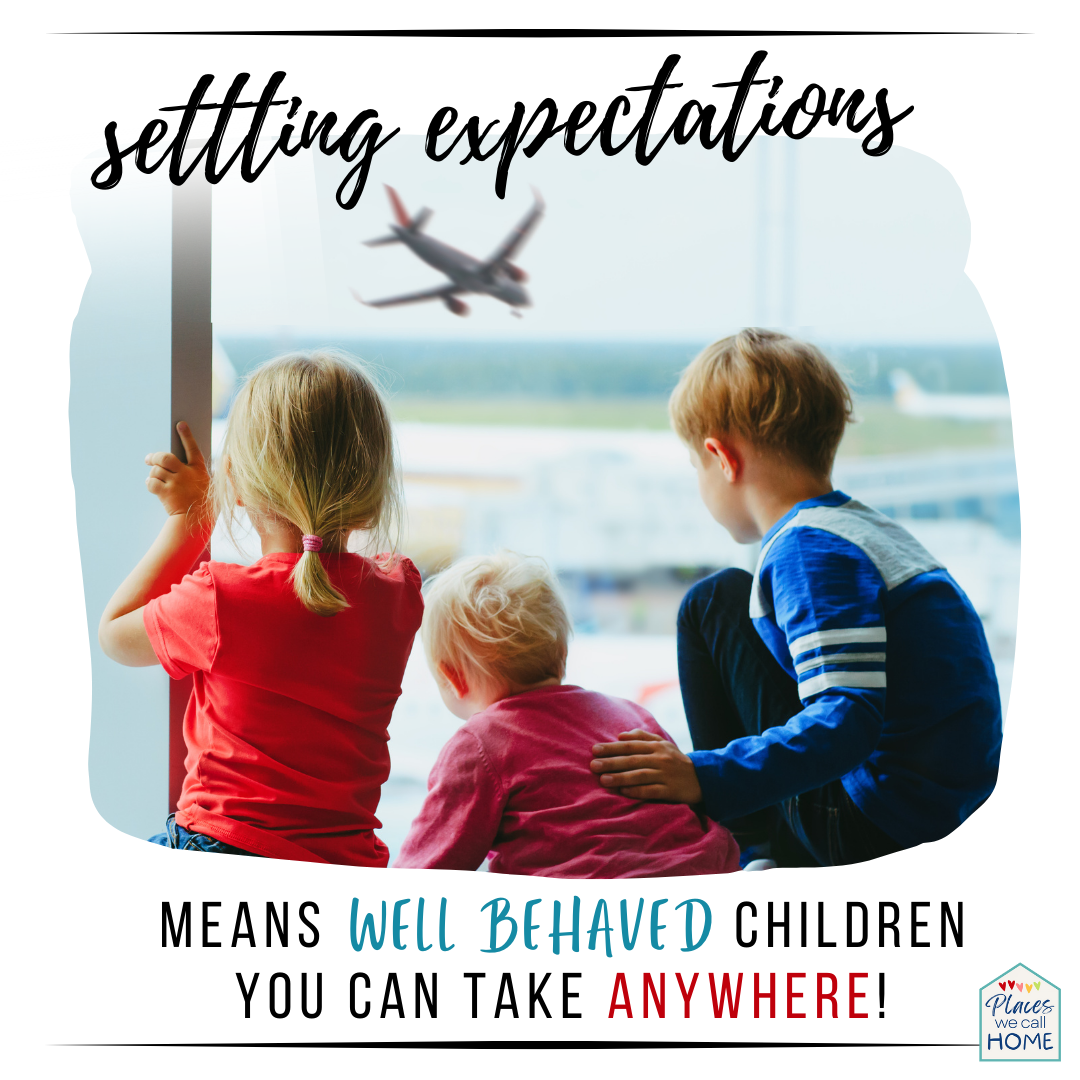Setting Expectations = Well Behaved Children
Moving far from family means we often stay with relatives. Having wild children and staying in someone else’s home - or even taking them on adventures - is a recipe for stress, anger, and failure.
Setting expectations before an event goes a long way towards happy and well-behaved children, and sets everyone up for success.
Twice in the past year my Mom commented to me that I’m doing a good job parenting. Both times I was setting expectations.
The first time we were taking Danny to preschool. As we pulled into the parking lot, he told us he didn’t want to go to school. After a moment, I told him, “Mommy always comes back.” His big solemn eyes looked into mine and he nodded. Yes. He carefully took my hand and we walked into school.
The second time we were pulling into a big box store parking lot. We had just moved to Canada and needed things for the new house. It was going to be a fairly long shopping trip. I turned and looked at the three children. “I expect you to behave in this store. What does that mean?” They answered the usual: don’t run, don’t yell, stay with the cart, be kind and helpful.
That’s what I usually expect. But this time I wanted more. I told them, “Everyone in this store can tell we’re American. They can tell by how we talk and even what we’re wearing. We are representing our country. Let’s represent it well, ok?”
In the first instance, I set the expectation that I would always come back for Danny. It eased his fears about me leaving him at school, and because he knows I say what I mean, he trusted me. He successfully walked into the classroom without tears or clinging.
In the second instance, I set the expectation that the children would behave, and I put the huge responsibility of representing our country on their shoulders; they were as good as gold in that store, and we had a successful and efficient shopping trip.
I set expectations all the time:
before we walk into someone else’s house: greet all the adults by name; shake hands with eye contact; we refresh our table/food manners
before we leave some else’s house: I pull the children aside one by one and remind them to look in our hosts’ eyes and thank them
before walking into a store: we are not buying any toys today, or the usual described above
before going to a busy place: stay where I can see you; if you get separated, stay put and look for a worker (and I describe what the worker will be wearing); it’s going to be very busy in here, so I need you to pay attention and not mess around; I have them recite my phone number to refresh it in their minds
before going into a restaurant we review “restaurant manners”
before leaving our hotel room: there are many people on this floor and we aren’t going to run and yell down the hallway
before any situation where they might get gifts: no matter what you unwrap, you look the giver in the eye and thank him or her
by practicing our secret signal for end-of-dinner manners
The examples above make going out of the house easier and more pleasant for everyone. The children are successful, feel good about themselves, and know that by behaving in the expected manner, we can do more fun things as a family.
There are countless other ways I set expectations. Some are specific to specific places:
remember we don’t play in the front yard
remember to be very careful of the doors because of their dog
don’t leave the house unless you tell me (when the hosts have a pool or are near beach/bay)
I set expectations when I know the social setting might be tricky for them:
when my Gran was on hospice, even though she looked a little different on her bed and hooked up with tubes, that they would at least greet her, and at most hold her hand and tell her a short story (and we brainstormed stories they could share)
when mixing friend groups: remember that so-and-so doesn’t know your school friends, so let’s make sure you include her
before a large party we practice hand shakes and introductions, and we expect them to greet people before disappearing with the other children
. And I set expectations in the house:
before we do something fun: “I’ll know you’re ready to watch a movie when your room is picked up and all the legos are put away.”
before I cook dinner: “I’m about to cook dinner. I won’t be able to help you for a few minutes.”
before friends come over: “I expect you and your friends to stay out of my room. You can play in the whole house and yard, but not in my room.”
Reading this, it may seem like our house has a lot of rules and no fun, but that’s quite the opposite.
Most of our expectations are common manners and reasonable requests, but how will children learn what’s expected of them if they aren’t taught?
Our children are set up for success because they know what they should do. My stress decreases, knowing they aren’t thrown into a situation and left to decide on their own what’s appropriate behavior.
Leave a comment and tell me how you set expectations. I’d love to see how it works for you and your children!






